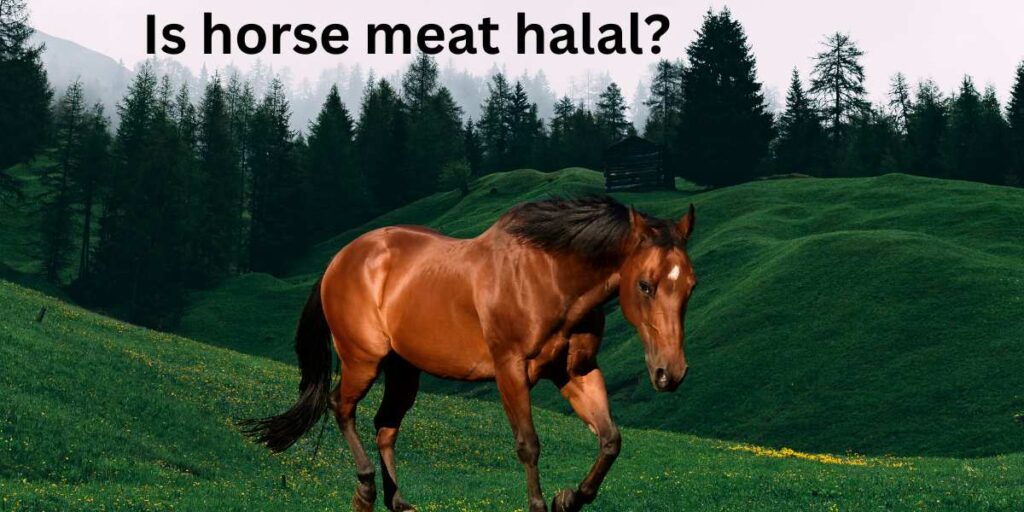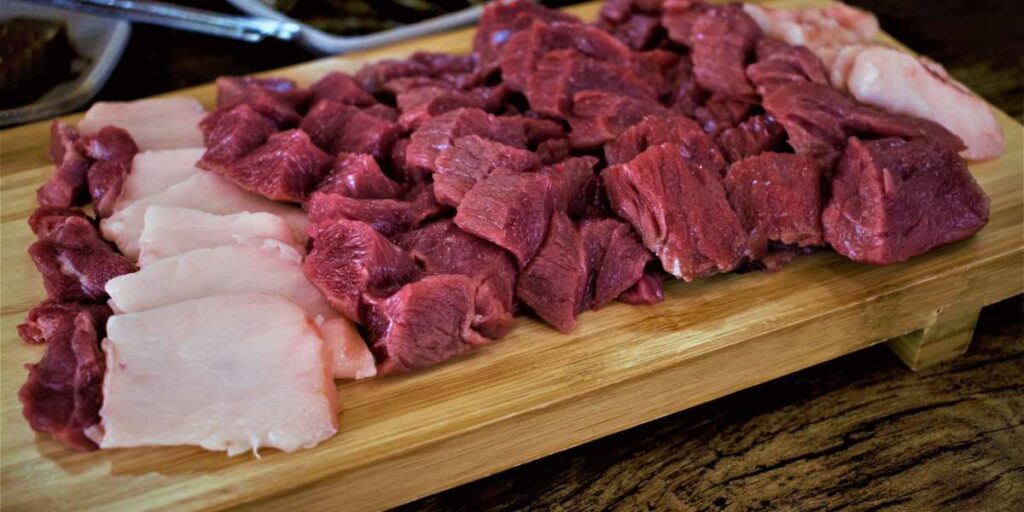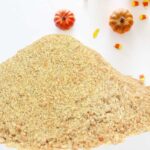Horse meat is significant in many cultures and is known for its rich nutrients that can increase vitality and heal various aches. Historically, horses provided strength and horsepower to pull heavy loads and travel long distances, essential machinery before modern engines. The consumption of horse meat may transfer these qualities, giving people a sense of stamina and force in their lives. Whether it is halal depends on ensuring the meat is processed according to religious guidelines, as horses are strong, fast, and essential for long distances.
Is horse meat halal?
No, horse meat is not always halal unless specific rules are followed. Halal meat must meet certain conditions, and horse meat is only allowed if it meets those standards.

Some scholars permit horse meat as halal. Proper guidelines are necessary to ensure it is considered halal before consumption.
WHY IS HORSE MEAT CONSIDERED HALAL?
Islamic dietary law guides us on what is halal. The Messenger of Allah (SAW) allowed horse meat during the Day of Khaibar.
يَا أَيُّهَا النَّاسُ كُلُوا مِمَّا فِي الْأَرْضِ حَلَالًا طَيِّبًا
O humanity, eat from whatever is on earth [that is] lawful and good.
Horse meat is halal because the Messenger of Allah (SAW) allowed its consumption. He forbade the eating of domestic asses but permitted horse meat. Horses are grass-eating animals and different from carnivores with claws for tearing prey. Haram animals include birds of prey with talons.
The companions of the Prophet (Peace be unto them) ate horse meat and drank its milk. Other halal foods like deer meat and seafood are also allowed. Creatine from halal animals is considered halal.
The hadiths support this, showing that horse meat is halal. Domestic asses were prohibited, but horses were not. Horses are considered clean and halal.
WHY DON’T SOME ISLAMIC SCHOOLS OF THOUGHT ACCEPT IT AS HALAL?
Horses are admired for their strength, beauty, and connection to royalty. Some people see them as more than animals, making eating horse meat uncomfortable. Horses are not ruminant animals, so some Islamic scholars consider them haram. Their halal status is debated because they don’t have a chambered stomach like other halal animals. The emotional taboo around eating horses is also linked to their special place in prestigious activities like sports and warring. In some cases, foods like parmesan cheese or eating frogs are also questioned for their halal status, similar to the concerns with horse meat.
“Forbidden to you (for food) are: dead meat, blood, the flesh of swine, and that on which hath been invoked the name of other than Allah.” – Quran 5:3
WHY DON’T SOME ISLAMIC SCHOOLS OF THOUGHT ACCEPT IT AS HALAL?
- Horses are admired for their strength and beauty.
- Horses are linked to royalty, sporting, and warring.
- Horse meat is rare, and its halal status is debated.
- Some people see horses like family, making it hard to consider them food.
CASES WHERE HORSE MEAT COULD BE CONSIDERED NON-HALAL?
Horses are considered halal for consumption if treated rightly under Islamic law. However, some schools of thought see horse meat as non-halal or makruh because of its link to pagan worship or pagan deities. If the method of production involves haram ingredients, it may be seen as taboo among devout Muslims.
Some Muslims view certain types of seafood, like sharks, similarly. Islamic law requires proper handling of meat to ensure it remains halal.
What Hadith Explains Eating Horse Meat Is Sunnah?
Hadith from Ibn Majah talks about eating horse meat, making it a Sunnah in Islam. Respected for their role as riding beasts, horses are not just animals for work. Their meat is allowed when necessary, showing the balance in Islamic teachings.
Muslims say Bismillah before eating meat, whether it’s from horses, camels, or cows. This practice ensures the meat is halal and follows religious guidelines. It’s about meeting needs, not about desire or pleasure.
Eating horse meat is allowed, especially in times of need. Hadith guides Muslims to make choices that align with necessity and religious rules.
- Sacred Practice: Recite Bismillah before eating meat.
- Horses, camels, and cows: Their meat is allowed when needed.
- Hadith emphasizes the role of riding beasts and the balance in Islamic life.
“If any of you rides an animal, he must say at its neck whenever he mounts it: Bismillāh—In the Name of Allah.” Prophet Muhammad (Ibn Majah)
This teaching shows how Islam guides everyday decisions, focusing on practical needs while respecting religious duties.
Conclusion
Horse meat is debated among scholars. Horses symbolize royalty and prestige, making their halal status unclear. They are not ruminant animals, unlike others with chambered stomachs that eat grasses. The rarity of horse meat and its comparison to parmesan cheese or eating frogs in some cultures adds to the hesitation.
FAQs
Q1. Is Seahorse Halal?
Seahorses are not considered halal because they do not meet the criteria for halal animals. They are not grass-eating creatures like horses.
Q2. Why Do Muslims Not Eat Horses?
Some Muslims avoid eating horse meat because horses are valued for their work and as grass-eating animals. Islamic dietary law usually permits halal animals but restricts carnivores and birds with nails or claws.
Q3. Is Horse Meat Halal In Sunni Islam?
Yes, horse meat is allowed in Sunni Islam. It can be eaten under specific circumstances if prepared according to Bhabha guidelines.
Q4. Is Zebra Halal in Islam?
Yes, zebras are generally halal. They must be adequately prepared for consumption, such as goats, sheep, and deer. Some schools of thought may have different views, but there is general agreement on their halal status.






